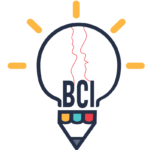Creative artistry workshops offer numerous advantages for SEND learners, fostering their development in various ways:
- Enhanced Communication: Creative workshops provide alternative means of expression for learners with communication difficulties. Art, music, or drama can serve as powerful channels for self-expression when verbal communication is challenging.
- Sensory Stimulation: Many SEND learners have sensory sensitivities. Art workshops offer controlled sensory experiences through different textures, colours, and materials, aiding sensory integration and regulation.
- Emotional Expression and Regulation: Artistic activities enable learners to express emotions they might find challenging to verbalize. This fosters emotional regulation and can help in processing feelings.
- Improved Fine Motor Skills: For learners with motor difficulties, creative workshops involving painting, sculpting, or crafting can enhance fine motor skills and coordination.
- Social Interaction: Collaborative art projects encourage teamwork, communication, and cooperation among SEND learners, promoting social skills and peer interaction in a supportive environment.
Assistive technologies can further support the engagement and success of SEND learners in creative workshops:
- Adaptive Art Tools: Specialized tools like adapted paintbrushes, grips, or easels assist learners with limited mobility or fine motor challenges in creating art.
- Text-to-Speech and Speech-to-Text Software: For learners with communication difficulties, software that converts spoken words to written text and vice versa can facilitate participation and understanding.
- Sensory Equipment: Technologies such as sensory boards, tactile mats, or interactive sensory devices provide controlled sensory experiences, aiding regulation for those with sensory processing challenges.
- Augmented Reality (AR) and Virtual Reality (VR): AR/VR applications offer immersive experiences that can be tailored to suit various learning styles and abilities, providing interactive and engaging artistic experiences.
- Communication Devices: Devices equipped with communication apps or software support learners who struggle with verbal communication, enabling them to express themselves more easily.
- Switch Accessible Software: This technology allows learners to engage in artistic activities using switches or alternative input devices, making creative tasks more accessible.
By combining creative artistry workshops with assistive technologies, SEND learners can explore their creativity, enhance their skills, and engage in expressive activities catering to their needs and abilities.

